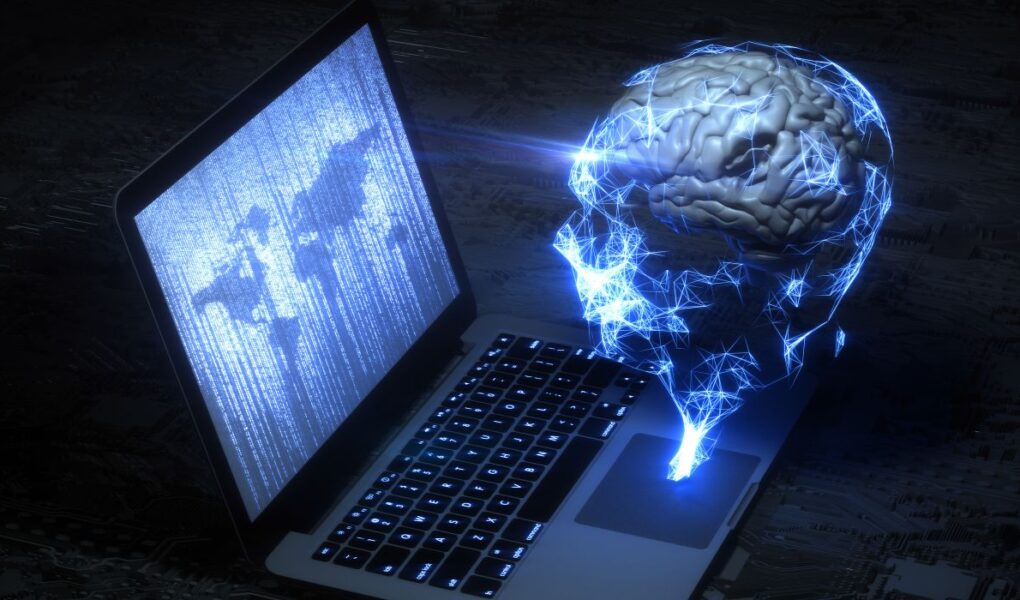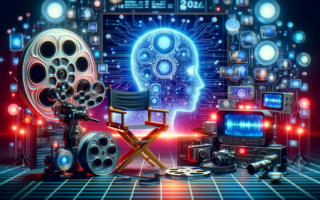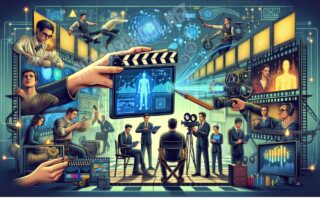Welcome to a fascinating exploration into the world where artificial intelligence meets the art of film critique.
In this blog post, we’ll dive deep into the realm of AI-powered movie reviews, exploring how algorithms are reshaping the way we analyze and appreciate cinema.
Understanding AI in Film Critique
Before we delve into the specifics of how AI algorithms are revolutionizing film critique, let’s take a moment to understand what exactly we mean by “AI in film critique.”
Artificial Intelligence, or AI, refers to the simulation of human intelligence in machines, particularly computer systems. These systems are programmed to perform tasks that typically require human intelligence, such as problem-solving, decision-making, and language understanding.
In the context of film critique, AI algorithms are designed to analyze and evaluate movies based on various criteria, ranging from plot coherence and character development to visual aesthetics and audience engagement.
The Rise of AI in Movie Reviews
In recent years, the entertainment industry has witnessed a surge in the use of AI algorithms for movie reviews. This trend can be attributed to several factors, including the exponential growth of data available on movies, advancements in natural language processing (NLP) technologies, and the increasing demand for personalized content recommendations.
One of the most prominent examples of AI in film critique is the use of recommendation systems by streaming platforms like Netflix and Amazon Prime Video. These platforms leverage AI algorithms to analyze user preferences and behaviour, providing tailored movie recommendations based on individual tastes and viewing history.
The rise of AI in movie reviews has been fueled by several factors, each contributing to the increasing adoption of artificial intelligence technologies in the entertainment industry. Let’s delve deeper into these factors:
- Data Explosion: With the advent of digital technology and the proliferation of streaming platforms, the amount of data available on movies has exploded. This includes not only traditional sources such as box office performance and critical reviews but also user-generated content like social media posts, blogs, and online forums. AI algorithms excel at processing and analyzing vast amounts of data, making them well-suited for extracting valuable insights from this wealth of information.
- Advancements in Natural Language Processing (NLP): Natural language processing, a branch of artificial intelligence focused on understanding and interpreting human language, has witnessed significant advancements in recent years. This has enabled AI algorithms to parse and analyze textual content related to movies with greater accuracy and sophistication. From deciphering movie reviews to identifying emerging trends in audience discussions, NLP-powered algorithms play a crucial role in shaping the landscape of movie reviews.
- Personalization and User Experience: In an era characterized by personalized content recommendations and tailored user experiences, AI-powered movie reviews offer a compelling solution for catering to diverse audience preferences. Streaming platforms leverage AI algorithms to deliver personalized movie recommendations based on individual viewing habits, preferences, and demographics. By analyzing user behavior and feedback, these algorithms can suggest movies that are likely to resonate with each viewer, enhancing the overall user experience and driving engagement.
- Competitive Advantage for Studios and Distributors: For movie studios and distributors, understanding audience preferences and predicting box office performance are critical aspects of decision-making. AI-powered movie reviews provide valuable insights into audience sentiment, preferences, and trends, enabling studios to make more informed decisions regarding production, marketing, and distribution strategies. By leveraging AI algorithms to analyze audience feedback and engagement, studios can identify emerging trends, anticipate audience demand, and optimize their content offerings accordingly, gaining a competitive advantage in the highly competitive entertainment landscape.
- Cost and Time Efficiency: Traditional methods of movie reviews often involve time-consuming processes such as manual data collection, analysis, and synthesis. AI algorithms, on the other hand, offer a cost-effective and time-efficient alternative by automating many of these tasks. By harnessing the power of machine learning and data analytics, AI-powered movie reviews can process and analyze vast amounts of data in a fraction of the time it would take human reviewers, enabling faster turnaround times and more timely insights.
Overall, the rise of AI in movie reviews represents a convergence of technological innovation, data abundance, and changing consumer preferences.
As AI algorithms continue to evolve and improve, we can expect to see further integration of artificial intelligence technologies into the fabric of the entertainment industry, reshaping the way we analyze, critique, and appreciate movies.
How AI Algorithms Review Movies
So, how exactly do AI algorithms review movies? The process typically involves several key steps:
- Data Collection: AI algorithms gather data from various sources, including movie databases, user reviews, and social media platforms. This data includes information about the movie’s plot, cast, crew, genre, release date, and audience reactions.
- Natural Language Processing: Once the data is collected, AI algorithms use natural language processing techniques to analyze textual content related to the movie, such as reviews, comments, and critiques. This involves parsing and understanding the meaning of the text, identifying key themes and sentiments, and extracting relevant information.
- Sentiment Analysis: AI algorithms perform sentiment analysis on the textual content to determine the overall sentiment or tone of the reviews. This helps in gauging whether the movie is generally well-received or poorly received by audiences and critics.
- Feature Extraction: AI algorithms extract various features from the textual content, such as keywords, phrases, and themes. These features are used to generate a comprehensive representation of the movie’s content and style.
- Rating Prediction: Finally, based on the extracted features and sentiment analysis, AI algorithms generate a rating or score for the movie, indicating its overall quality and appeal.
Benefits of AI in Film Critique
The integration of AI algorithms into film critique offers several benefits:
- Efficiency: AI algorithms can process and analyze vast amounts of data in a fraction of the time it would take a human reviewer. This enables faster and more efficient movie reviews.
- Accuracy: AI algorithms can provide objective and unbiased reviews based on data-driven analysis, reducing the influence of personal biases or subjective opinions.
- Personalization: AI-powered recommendation systems can offer personalized movie recommendations tailored to individual preferences, enhancing the overall user experience.
- Insights: AI algorithms can uncover hidden patterns and insights in movie data, providing valuable feedback to filmmakers and studios for future productions.
Challenges and Limitations
Despite the many advantages of AI in film critique, there are also several challenges and limitations to consider:
- Subjectivity: While AI algorithms strive to provide objective reviews, they may still be influenced by subjective factors such as cultural biases or linguistic nuances.
- Complexity: Analyzing movies is a complex and multidimensional task that goes beyond simple text analysis. AI algorithms may struggle to capture the nuances of cinematic techniques and artistic expression.
- Data Bias: AI algorithms rely on training data, which may contain biases or inaccuracies that can affect the quality of movie reviews.
- Interpretation: AI-generated reviews may lack the human touch and nuanced interpretation that comes from human reviewers, potentially missing out on the deeper insights and emotional connections.
The Future of AI in Film Critique
As AI technologies continue to evolve and improve, the future of film critique looks increasingly intertwined with artificial intelligence.
We can expect to see more advanced AI algorithms capable of analyzing movies in greater detail, capturing the subtleties of cinematic artistry, and providing richer and more insightful reviews.
Furthermore, AI-powered recommendation systems will become even more sophisticated, offering highly personalized movie recommendations tailored to individual tastes and preferences.
In conclusion, AI algorithms are reshaping the landscape of film critique, offering new possibilities for analyzing, evaluating, and appreciating movies in innovative ways. While there are challenges and limitations to overcome, the integration of AI in film critique holds tremendous potential for enhancing the movie-watching experience and shaping the future of cinema.
So, next time you’re looking for a movie to watch, don’t be surprised if an AI algorithm helps you find your next cinematic gem!


